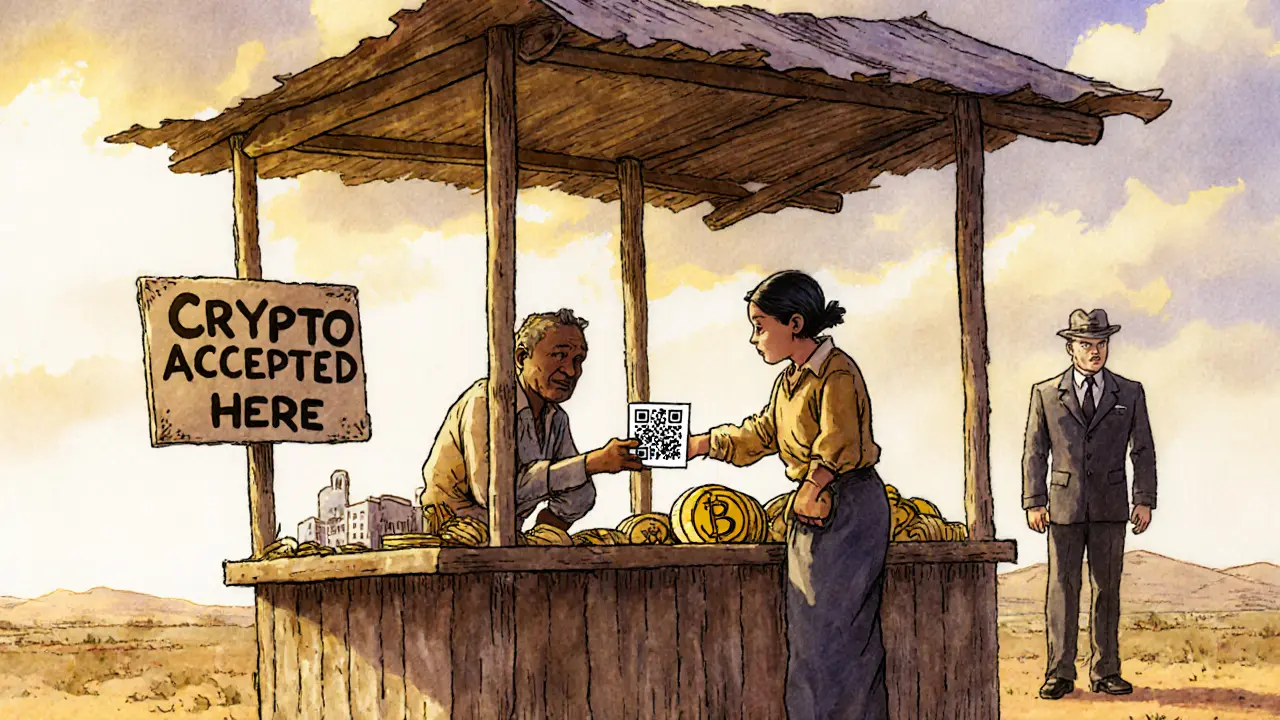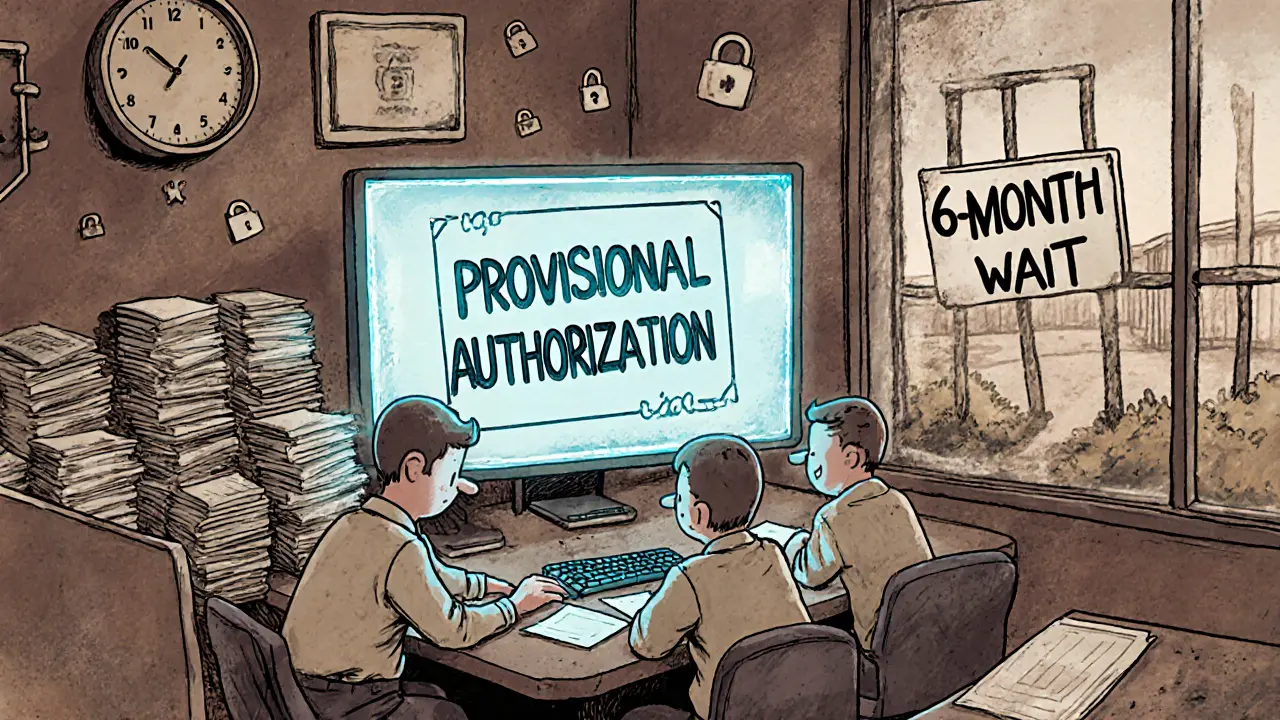
Back in 2018, the Bank of Namibia made it clear: cryptocurrencies weren’t welcome. They didn’t recognize Bitcoin or any other digital asset as a commodity, and they didn’t support trading them on any financial market. Fast forward to 2025, and the story has completely flipped. Namibia now has one of Africa’s most structured crypto frameworks - but it’s still tightly controlled. If you’re wondering how crypto works in Namibia today, here’s the real picture: crypto isn’t legal tender, but it’s not banned either. You can use it to pay for goods if a merchant agrees. And businesses? They can get licensed - if they jump through enough hoops.
How Namibia’s Crypto Rules Changed - Step by Step
The shift didn’t happen overnight. It was a slow, deliberate pivot. In 2018, the Bank of Namibia (BON) outright rejected crypto. No trading. No payments. No recognition. But by 2022, things started to loosen. BON quietly acknowledged that merchants could accept Bitcoin as payment - even though it still had no official status. That was the first crack in the wall.
The real turning point came in June 2023, when Namibia’s National Assembly passed the Virtual Assets Act (Act No. 10 of 2023). It wasn’t just a guideline. It was law. A month later, the Payment System Management Act (Act No. 14 of 2023) followed. Together, they created a legal backbone for crypto in Namibia. For the first time, digital asset businesses had a path to operate - but only if they got licensed.
Who Can Operate? The VASP Licensing Process
Any company wanting to run a crypto exchange, wallet service, or ATM in Namibia must register with the Namibia Financial Institutions Supervisory Authority (NAMFISA). The process isn’t quick. It’s a two-phase system designed to filter out risky players.
First, you get provisional authorization. This lasts six months. During that time, you can’t serve a single customer in Namibia. You can’t even advertise. Your job? Set up your tech, hire staff, install compliance systems, and prove you can track every transaction. Think of it as a regulatory sandbox - you’re allowed to build, but not to sell.
Only after those six months, and only if you’ve met every requirement, do you get full licensing. Even then, you’re not free to do whatever you want. You must follow strict rules: collect customer IDs, report transactions over NAD 20,000 (about $1,000), and keep records for at least five years. This is called the Travel Rule, and it’s copied straight from global anti-money laundering standards.
What’s Still Banned?
Even with licensing, there are hard limits. The Bank of Namibia has made it clear: no initial coin offerings (ICOs). They call them risky, misleading, and prone to fraud. You won’t find any ICOs operating legally in Namibia. And no foreign crypto exchanges are allowed. If you’re a platform based in the U.S., Europe, or Asia, you can’t serve Namibian customers - even if you’re licensed elsewhere.
Also, crypto still has no legal tender status. That means the government won’t accept Bitcoin to pay taxes. Banks aren’t required to hold or process crypto transactions. And if you get into a dispute over a crypto payment, you’re on your own - no consumer protection laws apply.
Who’s Already Licensed?
As of January 2025, four companies got provisional approval:
- Finatic Technologies (Pty) Ltd. - Payment services
- United PayPoint (Pty) Ltd. - Payment services
- Mindex Virtual Asset Exchange (Pty) Ltd. - Crypto exchange
- Landifa Bitcoin Trade CC - Crypto trading
But here’s the catch: by mid-2025, three of them had asked for extensions. Landifa got until July 31, United PayPoint until May 13, and Mindex until November 21. Why? Because meeting the technical and compliance standards is harder than it looks. Setting up secure systems, hiring trained staff, and proving you can track every transaction takes time - and money.
The Bank of Namibia isn’t rushing. They’re watching. They’re auditing. They’re making sure these firms don’t cut corners. If you’re a business trying to get licensed, don’t expect a quick win.

How Does Namibia Compare to Other African Countries?
Namibia isn’t the most open country in Africa when it comes to crypto. Nigeria banned banks from handling crypto in 2021. Botswana outright prohibits trading. Kenya? Mostly unregulated - a wild west where anyone can operate.
Namibia sits in the middle. It’s more structured than Kenya, more open than Nigeria, but less advanced than South Africa, which has had VASP licensing since 2022. What sets Namibia apart is that six-month waiting period. No other African country requires you to build your entire operation in silence before you can even talk to customers. It’s a unique model - designed to prevent fraud, but also to delay growth.
El Salvador made Bitcoin legal tender. Namibia won’t go that far. But it’s letting people use crypto privately - if they want to. That’s a big difference.
What About Blockchain? Is It Allowed?
Here’s where things get confusing. Namibia licenses crypto exchanges - but the U.S. Department of State’s 2025 Investment Climate Report says BON is reluctant to allow blockchain technology itself. That’s a contradiction. If you’re running a crypto exchange, you’re using blockchain. So why the hesitation?
It’s likely about control. The Bank of Namibia wants to regulate the financial side - buying, selling, exchanging - but not the underlying tech. They don’t want decentralized systems that can’t be monitored. That’s why they’re also working on a Retail Central Bank Digital Currency (rCBDC). A digital version of the Namibian dollar, controlled entirely by the central bank. That way, they get the benefits of digital payments without losing control.
What’s Next for Crypto in Namibia?
The Bank of Namibia is walking a tightrope. On one side, they see the global trend: crypto is here to stay. On the other, they’re worried about fraud, volatility, and financial instability. Their solution? Control everything - but slowly.
Expect more extensions for provisional licenses in 2025. Expect stricter audits. Expect more companies to fail compliance checks. And expect the central bank to keep pushing its own digital currency - the rCBDC - as the long-term answer to digital money.
For ordinary Namibians, crypto remains a gray area. You can use it to pay for a meal if the restaurant agrees. You can buy Bitcoin on a licensed exchange - but only after the exchange has spent six months preparing in the dark. You can’t trade on Binance or Coinbase. You can’t run an ICO. And you can’t count on any legal protection if things go wrong.
It’s not freedom. It’s not prohibition. It’s regulation with a pause button. And that’s exactly what the Bank of Namibia wants.

Can You Still Use Crypto in Namibia?
Yes - but only under strict conditions.
- You can pay for goods or services if the seller accepts it.
- You can buy or sell crypto only through licensed VASPs.
- You cannot use foreign exchanges - they’re blocked.
- You cannot participate in ICOs - they’re illegal.
- You cannot expect legal recourse if a crypto transaction fails.
There’s no law saying you can’t hold Bitcoin. But there’s no law protecting you if you lose it. That’s the reality.
What’s the Risk of Using Crypto in Namibia?
The biggest risk? Lack of protection. If a licensed exchange goes under, you won’t get your money back. If you’re scammed, there’s no government agency to turn to. If your crypto wallet gets hacked, you’re on your own.
Also, banks can refuse to process transactions linked to crypto. Even if you’re using a licensed VASP, your bank might freeze your account if they detect crypto activity. That’s happened before.
And while the law says you can use crypto for payments, most businesses still won’t. It’s too risky. Too unfamiliar. Too complicated. So unless you’re dealing with a tech-savvy merchant or a crypto-native business, you’re unlikely to use it in daily life.
What Should You Do If You’re a Business Owner?
If you want to launch a crypto service in Namibia, here’s what you need:
- Apply for provisional authorization through NAMFISA.
- Build a secure, compliant system that follows the Travel Rule.
- Hire staff trained in AML and KYC.
- Set up data storage and audit trails.
- Wait six months - no customers, no sales, no marketing.
- Pass a full inspection by BON and NAMFISA.
- Only then can you start operating.
It’s expensive. It’s slow. But it’s the only legal path.
What’s the Future of Crypto in Namibia?
Don’t expect a Bitcoin revolution. Don’t expect the Bank of Namibia to suddenly embrace crypto as money. What you will see is a slow, controlled evolution. More licensed VASPs. Fewer scams. More oversight. And a growing push toward the central bank’s own digital currency.
Namibia isn’t trying to be the crypto capital of Africa. It’s trying to be the most cautious one. And for now, that’s working.
Is Bitcoin legal in Namibia?
Bitcoin is not illegal in Namibia, but it is not legal tender. You can use it to pay for goods or services if the merchant agrees. However, the Bank of Namibia does not recognize it as official money, and banks are not required to handle Bitcoin transactions.
Can I trade crypto on Binance or Coinbase in Namibia?
No. Foreign crypto exchanges like Binance, Coinbase, or Kraken are banned from serving Namibian customers. Only VASPs licensed by Namibia’s NAMFISA can operate legally within the country.
Can I start a crypto business in Namibia?
Yes - but only after getting provisional authorization from NAMFISA and completing a six-month preparation period without serving customers. After that, you must pass a full compliance inspection to get a full license.
Are ICOs allowed in Namibia?
No. Initial Coin Offerings (ICOs) are explicitly banned by the Bank of Namibia. They are considered high-risk, prone to fraud, and not supported under any circumstances.
Does Namibia have a central bank digital currency?
Yes, the Bank of Namibia is actively exploring a Retail Central Bank Digital Currency (rCBDC). It’s not launched yet, but the goal is to improve financial inclusion and modernize payments - with full government control.
What happens if I get caught using an unlicensed crypto exchange?
There’s no specific penalty for individuals using unlicensed platforms - but your bank may freeze your account if they detect crypto activity. Also, you have no legal protection if you lose money. The risk is financial, not criminal - but it’s still high.
18 Comments
Write a comment
More Articles

Nigeria Crypto Ban Reversal Timeline: From 2021 Ban to 2025 Regulatory Framework
A detailed timeline shows how Nigeria moved from a 2021 crypto banking ban to a regulated digital‑asset framework by 2025, covering key events, new laws, and what they mean for users and businesses.


sandeep honey
November 14, 2025 AT 06:28So Namibia’s basically forcing crypto businesses to build a fortress before they can even say hello to customers? Six months of silent prep? That’s not regulation, that’s a marathon with no finish line in sight. I’ve seen startups burn out faster than this. If you’re not backed by serious cash, you’re just wasting time.